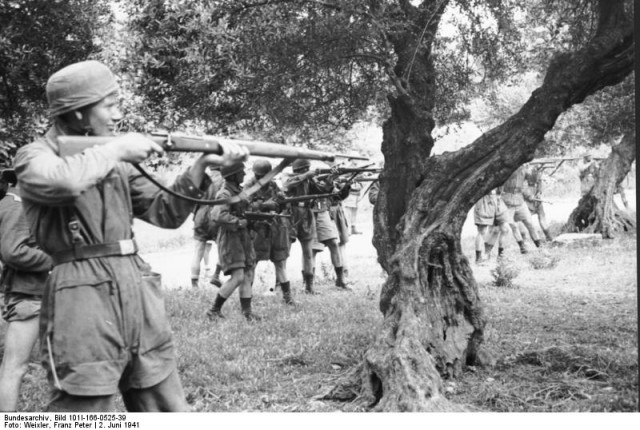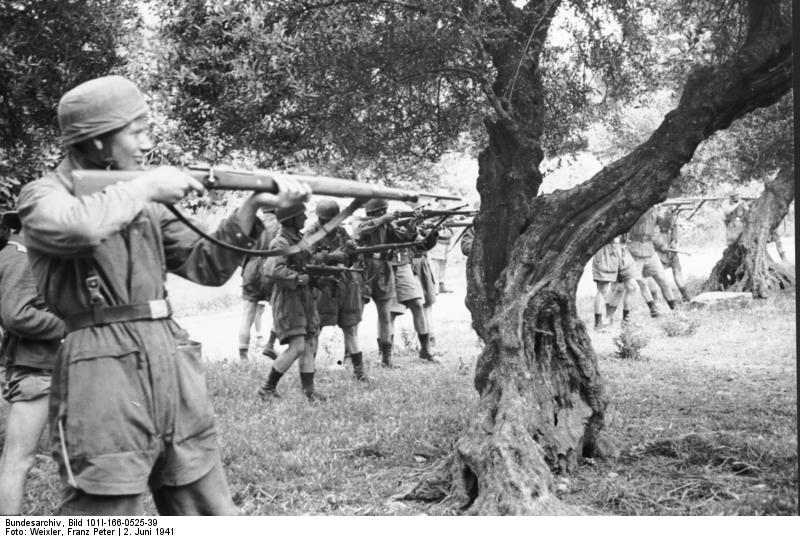
Italian troops attempted an invasion of Greece in October 1940, but the Greek army pushed the invaders back across the border into Albania.
Germany intervened to help its ally, aided by Bulgaria and by June 1941 Greece was effectively under a joint German/Italian/Bulgarian occupation. The country was divided into three zones, and when Italy capitulated in September 1943 the Italian zone came under a German occupation which lasted until mainland Greece was liberated by the Allies in October 1944.
This tripartite occupation was a disaster for the Greek economy, and the Greek people paid a harsh penalty for any form of resistance. On Crete, where the invasion was initially strongly resisted the German High command ordered that 10 members of the civilian population were to be executed for every German soldier killed or injured.
The German army requisitioned foodstuffs on a huge scale and although payments were made these did not equal the outflow of food and other materials. The Greek nation was effectively subsidising the German forces, and a huge financial deficit mounted. This, together with the decline in agricultural production brought about by the war and a blockade of supplies by the Allied forces caused widespread inflation and famine. In the Athens area alone, some 40,000 people starved to death.
The latter years of the occupation saw an increase in Greek partisan resistance, and this resulted in savage reprisals. It is estimated that the Germans killed 21,000 Greek civilians, another 40,000 being slaughtered by the Bulgarians, and 9,000 by the Italians.
On 16 August 1943, 317 inhabitants of the village of Kommeno were executed and the village set alight. Other similar atrocities followed, and hundreds of villages were burnt to the ground. In all, almost a million Greeks were left homeless as a result, the Yahoo News reports.
The present day Greek government has recently been able to examine formerly classified Wehrmacht documents from the time of the occupation, held in the US national archive. The files contain a wealth of detail relating to German attitudes towards the Greek people, including an instruction that troops operating in Northwest Greece should show no mercy towards the population following partisan resistance movement activities. People – including children – were to be executed on the spot.
The Greek government intends to pursue the matter of war reparations, including the repayment of enforced loans, and the return of looted historical relics. The German government insists that the financial debt was settled in 1960.
